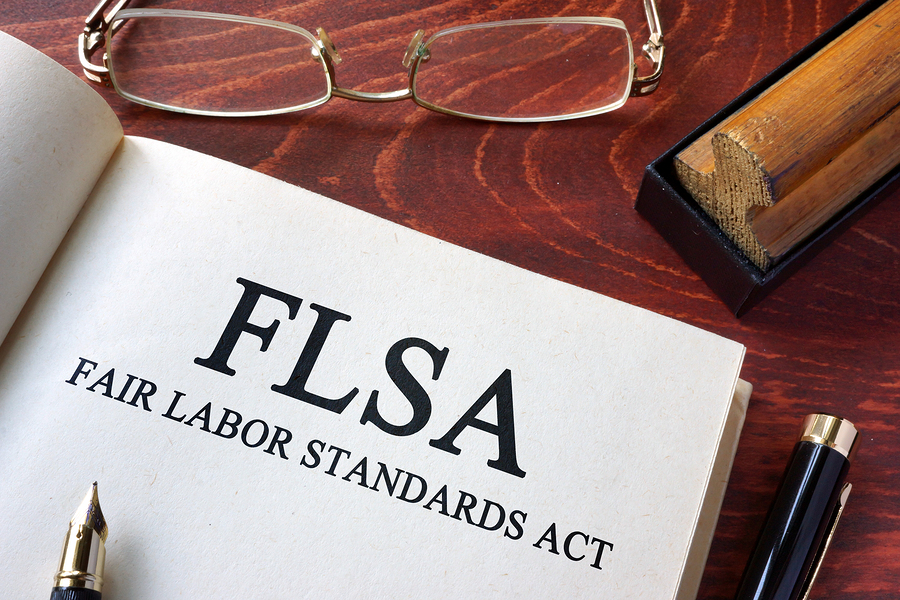Restaurants face special rules for payroll, wages and tips that set them apart from most other businesses. In few industries do customers directly help pay employee wages through tips. These rules come mainly from the federal Fair Labor Standards Act (FLSA) and state laws, and can lead to common compliance issues, if not handled carefully. Minimum wage – While the federal minimum wage is $7.25 per hour, for tipped employees who engage in an occupation in which they customarily and regularly receive more than $30 per month in tips, their minimum wage is only $2.13 per hour in direct wages,…
Posts tagged as “Overtime”
As discussed in our earlier blog post here, the One Big Beautiful Bill Act (OBBBA) allows for a provision of “no tax” on tips and overtime. This has turned out to be a bit of a mess, as it pertains to 2025 reporting to the employees, due to insufficient time for the Social Security Administration and the IRS to make the changes to their forms to account for it. Not to mention many payroll systems were not prepared for this brand new retroactive reporting, especially as it pertains to qualified overtime. With that being said, 2025 will be treated as…
On Independence Day, 2025, President Trump signed into law the One Big Beautiful Bill Act. This 330-page act covers a great deal, most of which will not be discussed in this article, but since it does have an impact on the payroll world, I will review pertinent items including the no tax on tips and overtime provision and the retroactive change to the Employee Retention Tax Credit. Employee Retention Tax Credit For ERTC, there will be no credit allowed for claims involving the 3rd and 4th quarter 2021, filed after January 31, 2024. This is somewhat good news, as Congress…
Compensatory time, or “comp time,” is an alternative to overtime pay where employees receive paid time off instead of extra wages for overtime hours worked. But, not so fast. While this may seem like a useful tool for managing labor costs and scheduling, its legality depends on the type of business and the classification of employees. Employers must understand the rules before offering comp time to avoid legal issues. The legality of comp time depends on whether an employer operates in the public or private sector: Public-Sector Employers: Under certain prescribed conditions, employees of state and local government agencies are…
Overtime. It is a subject that you may think you know well, but do you? It is not always a simple matter of paying the employee “time and a half” for any hours worked in excess of 40 hours in a workweek. There is much more to take into consideration, and while this article is not intended to cover every scenario out there, we will touch a number of bases. What we will not cover, this time around, is who may be exempt from overtime. Let’s start with the federal law, where the overtime provisions are contained in the Fair…
Compensatory time, aka Comp Time, has been an acceptable practice for government employees, but a recent bill passed by the House on May 2nd moves on to the Senate. Comp time is formally defined as time off that is accrued by an employee in exchange for cash overtime pay, or more precisely as 1.5 hours of Comp time in exchange for 1 hour worked of overtime. While this may be happening in private businesses today, it is currently a violation of the Fair Labor Standards Act (FLSA), and the Working Families Flexibility Act of 2017 (H.R. 1180) is looking…
A federal Judge on Tuesday blocked the law that was passed on May 17th, 2016 to increase the minimum salary amount a worker can earn and remain exempt from overtime pay. U.S. District Judge Amos Mazzant, of Texas, agreed with 21 states and a coalition of business groups, including the U.S. Chamber of Commerce, that the rule is unlawful and granted their motion for a nationwide injunction. Mazzant stated that the federal law governing overtime does not allow the Labor Department to decide which workers are eligible based on salary levels alone. The rule was to take effect on…
By: Matthew N. Thibaut, Esq. Employment Law Practice Group CIKLIN LUBITZ & O’CONNELL The Fair Labor Standards Act (FLSA) is an extremely technical statute that was enacted in 1938, which is the federal law providing employees overtime protection. Under the FLSA, an employee in the United States is entitled to receive 1.5x their regular rate of pay for hours over 40 unless they are exempt. The most common exemptions are the executive, professional and administrative exemptions, also referred to as the “white collar” exemptions. These exemptions are not determined by occupation, job title or classification, but rather by a two-part test: (1) duties test and (2)…








